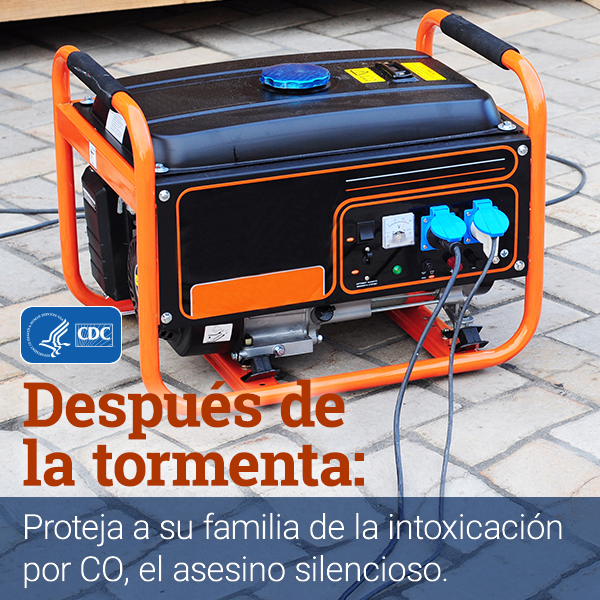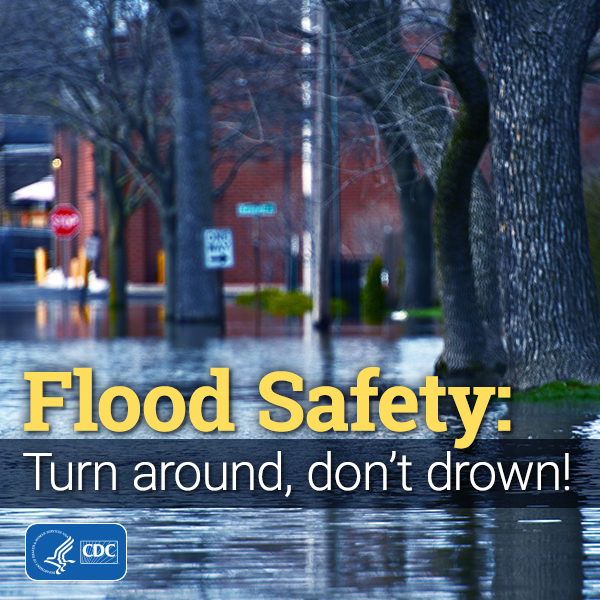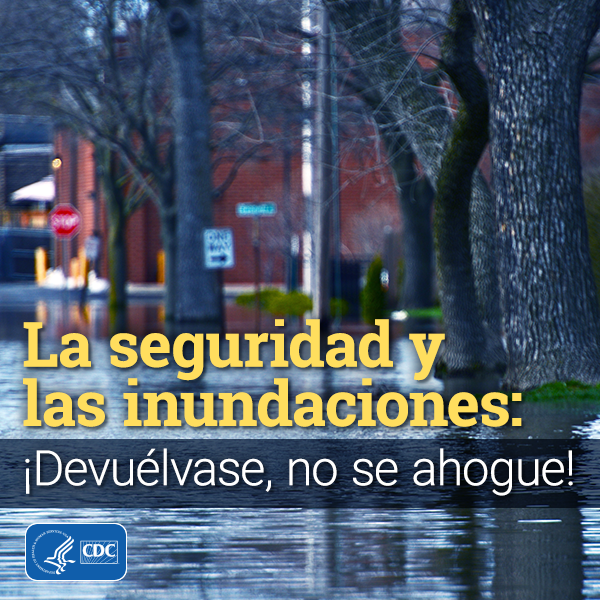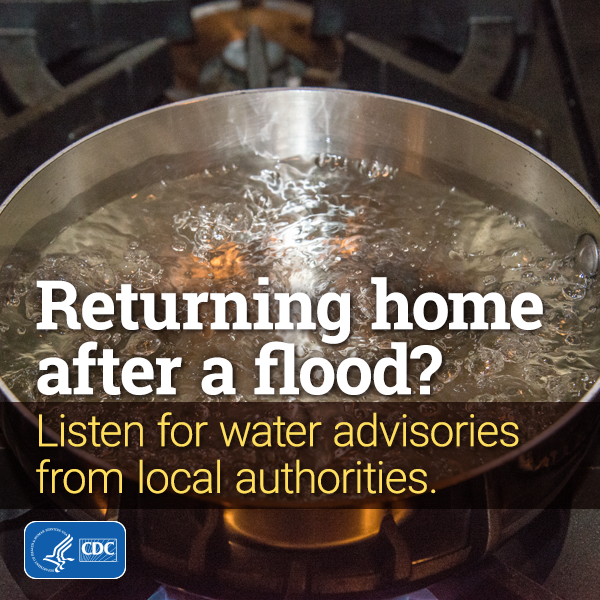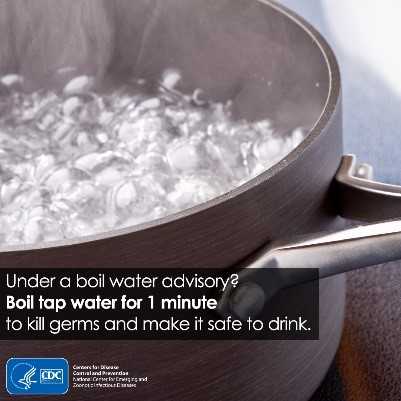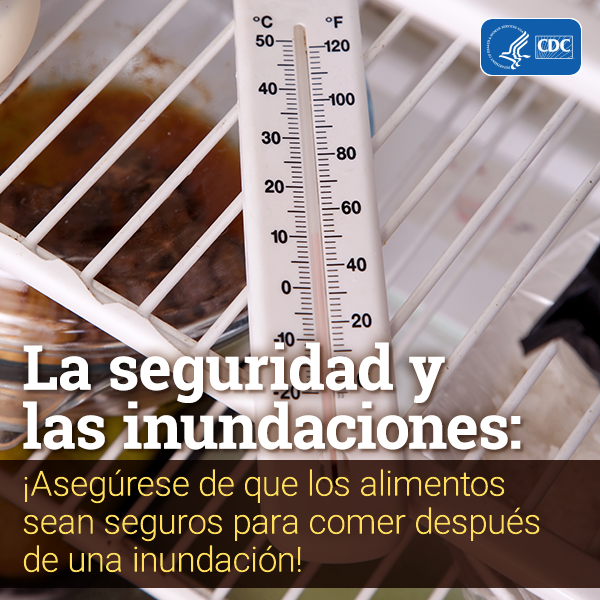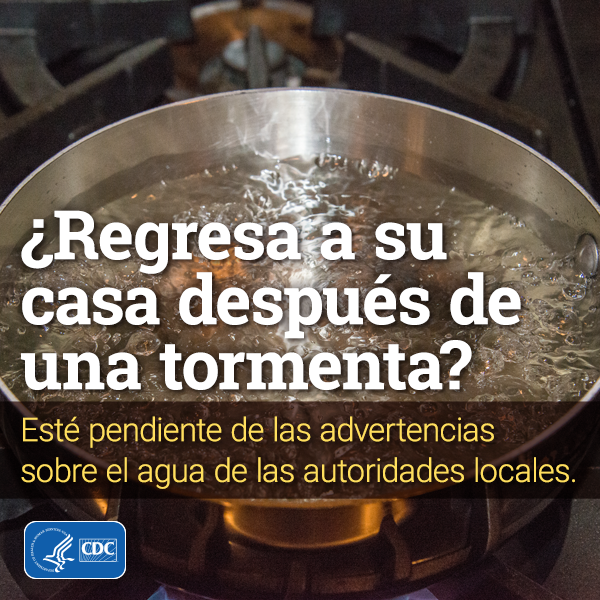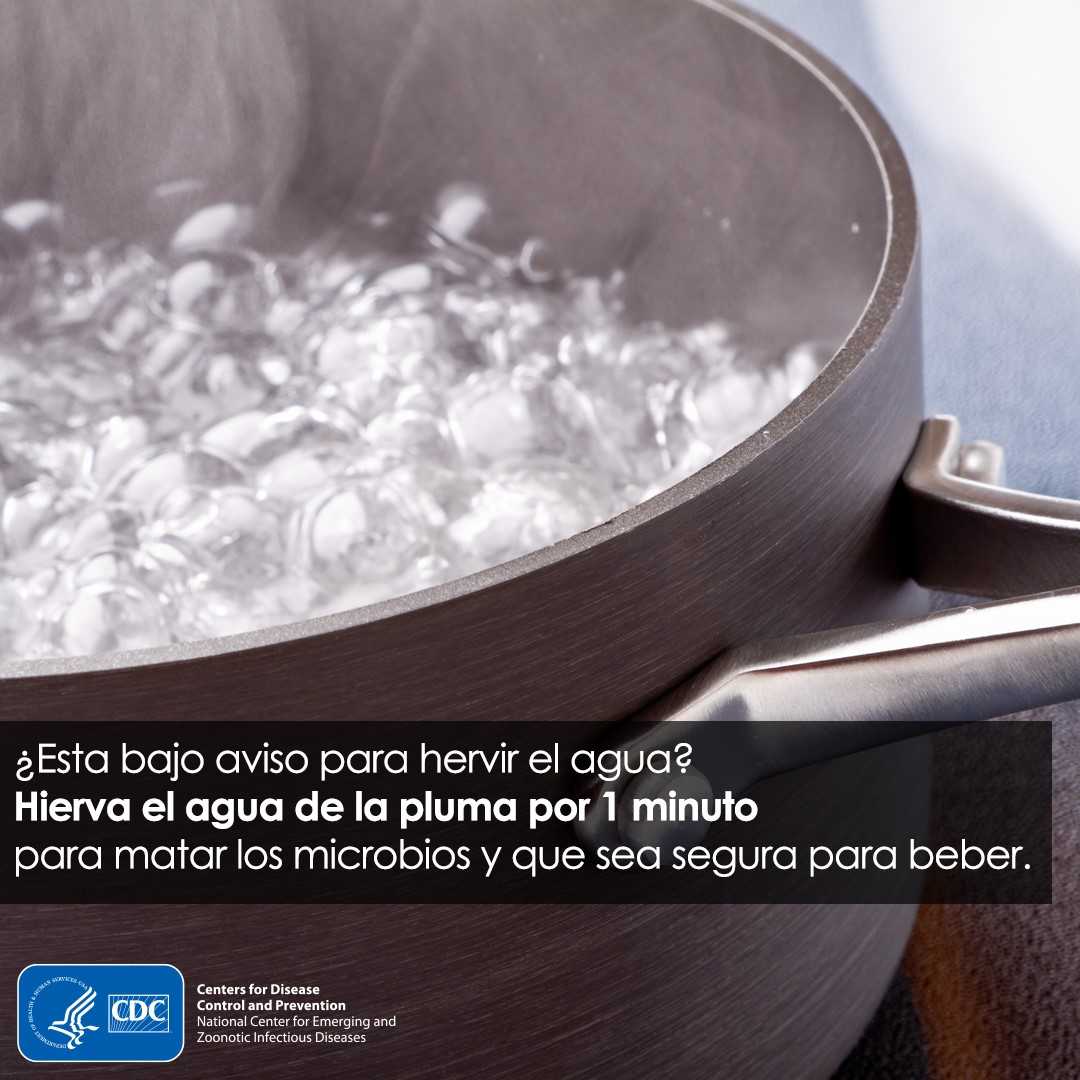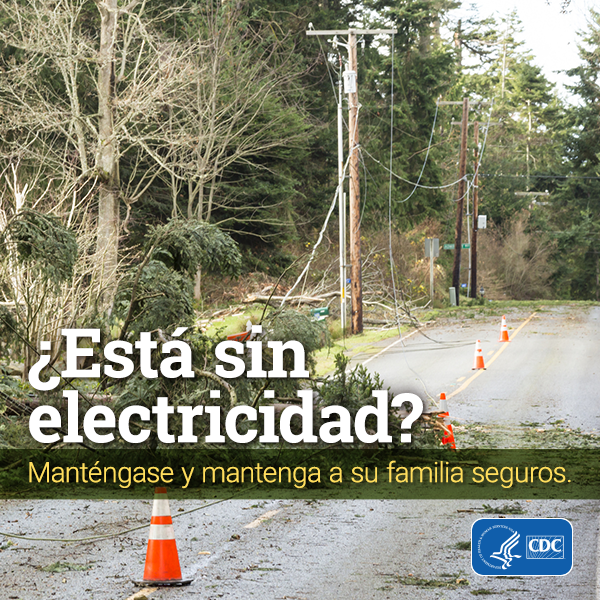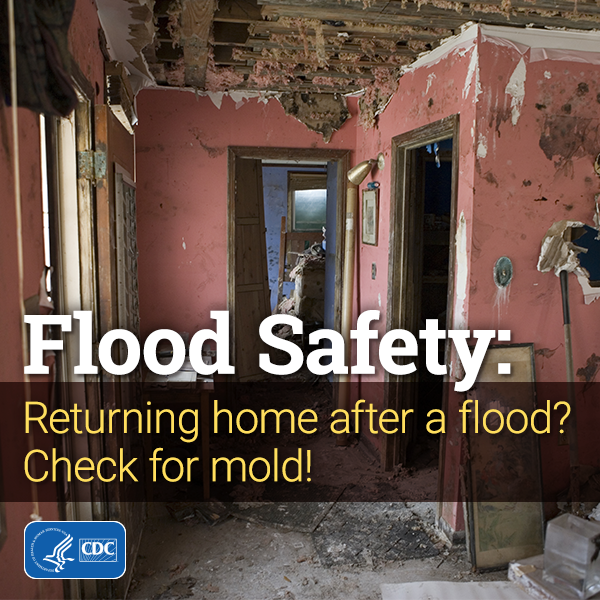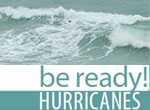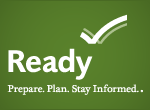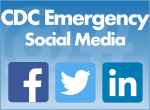Hurricane Maria: How to Help Loved Ones in Puerto Rico and the US Virgin Islands

If you have friends, family, or other loved ones in Puerto Rico, the US Virgin Islands, or other hurricane-affected areas, you can help ensure they stay safe by sending them health and safety information. This toolkit offers different messages in both English and Spanish you can send via text message, email, or social media. Even if you do not personally know anyone in the affected areas, you can still help spread these important messages.
Post on social media
Post these messages on Twitter or Facebook and tag your friends and family in Puerto Rico, the US Virgin Islands, or other areas affected by hurricanes this year. You can also follow CDC on our social media channels and share or retweet our health and safety messages.
Carbon Monoxide (CO)
| English | Spanish |
|---|---|
| If your power is out, remember to always run a generator, or any gasoline-powered engine outside, and at least 20 feet from windows, doors, or vents. Read more information on how to protect yourself and your family from CO poisoning. #Maria http://go.usa.gov/Dtd |
Si no tienes electricidad, recuerda siempre colocar el generador o motor de gasolina afuera, al menos a 20 pies de puertas o ventanas. Lee más información sobre cómo protegerte y proteger a tu familia de la intoxicación por CO. #Maria http://bit.ly/2wQziTm |
Extreme Heat
| English | Spanish |
|---|---|
| Extreme heat can be especially dangerous for those with chronic medical conditions like heart disease, mental illness, poor blood circulation, and obesity. Check on friends and loved ones, and follow these tips on how to prevent heat-related illness after a power outage. #Maria http://bit.ly/2xsOqWL |
El calor extremo puede ser muy peligroso para personas con condiciones crónicas como enfermedades cardiacas, enfermedades mentales, mala circulación y obesidad. Chequee a amigos y seres queridos, y siga estos consejos para evitar enfermedades por calor tras un corte de luz. #Maria http://bit.ly/2wlm6lI |
Flood Safety
| English | Spanish |
|---|---|
| Turn around, don’t drown! Don’t drive through flooded areas and standing flood water. As little as six inches of water can cause you to lose control of your vehicle. Learn steps you can take to protect yourself and your family. #Maria http://bit.ly/2mphfia |
¡Da la vuelta y no te ahogues! Después de una inundación, evita manejar por áreas inundadas y aguas estancadas. Solo 6 pulgadas de agua pueden hacer que pierdas el control de tu carro. Lee más información sobre cómo mantenerte seguro después de una inundación. #Maria http://bit.ly/2vdVUgj |
| If your home was flooded, check for mold growth. CDC offers information on how to clean up mold safely after the flood. #Maria http://bit.ly/2uOcKyP |
Si se inundó tu hogar, fíjate si están saliendo hongos. Los CDC ofrecen información sobre cómo limpiar los hongos y el moho de forma segura después de una inundación: #Maria http://bit.ly/2y7J7d5 |
Food and Water Safety
| English | Spanish |
|---|---|
| Listen to water advisories from local authorities to find out if your water is safe for drinking and bathing after a hurricane. You may only be able to use bottled, boiled, or treated water for drinking, cooking, etc. Learn more about staying safe following a flood: #Maria http://bit.ly/2vGiri3 |
Estén pendientes a las advertencias de las autoridades locales para saber si el agua es segura para beber y bañarse después del huracán. Es posible que solo puedan usar agua embotellada, hervida o tratada para beber, cocinar, etc. Aquí pueden leer más información sobre cómo mantenerse seguros después de la inundación. #Maria http://bit.ly/2vtkSs3 |
Returning Home and Clean-up
| English | Spanish |
|---|---|
| Parents: When you return home after a flood, keep your children out of the affected area until cleanup is completed. Don’t allow children to play in or near flood waters. CDC offers tips to keep your family safe after a flood: #Maria http://bit.ly/2mtLwbu |
Padres: Cuando regresen a su casa después de la inundación, mantengan a sus hijos fuera del área afectada hasta que se haya completado la limpieza. No permitan que los niños jueguen en o cerca del agua de inundación. Los CDC ofrecen consejos sobre cómo mantener a la familia segura después de la inundación. #Maria http://bit.ly/2xXU7tS |
CO Poisoning
| English | Spanish |
|---|---|
| Keep generators or gas-powered engines outside, at least 20 feet away to prevent CO poisoning. #Maria http://go.usa.gov/Dtd |
Coloca el generador o motor de gasolina afuera, al menos a 20 pies para evitar intoxicación por monóxido de carbono. #Maria http://bit.ly/2viqy84 |
Extreme Heat
| English | Spanish |
|---|---|
| Power outages can be deadly in hot weather. Check on friends, family, and neighbors. #Maria http://ow.ly/7KYi30fpcCg |
El estar sin electricidad puede ser mortal si hace calor. ¡Cuidemos a los seres queridos! #Maria http://bit.ly/2x0VZlf |
| Stay cool, hydrated and informed to prevent heat-related illness after a hurricane. #Maria http://bit.ly/2rumICr |
Mantente fresco, hidratado e informado para prevenir enfermedades asociadas al calor despues del huracán. #Maria http://bit.ly/2xiTlu9 |
Flood Safety
| English | Spanish |
|---|---|
| Don’t drive through flooded areas and standing water. Turn around, don’t drown! #Maria http://bit.ly/2vo91HE |
Después de una inundación, evita manejar por áreas inundadas y aguas estancadas. ¡Da la vuelta y no te ahogues! #Maria http://bit.ly/2jiQdrG |
| Standing #flood waters can spread infectious diseases, bring chemical hazards, and cause injuries. #Maria http://bit.ly/2vo91HE |
El agua de #inundación puede propagar enfermedades infecciosas, llevar químicos peligrosos y causar lesiones. #Maria http://bit.ly/2jiQdrG |
| Don’t drive through flooded areas & standing water. Learn more about staying safe during a #flood. #Maria http://bit.ly/2vo91HE |
Evita conducir por áreas inundadas o con agua estancada. Lee info sobre cómo mantenerte seguro durante una inundación. #Maria http://bit.ly/2jiQdrG |
| If you are affected by a #flood, read these important tips on staying safe. #Maria http://bit.ly/2vo91HE |
Si fuiste afectado por una #inundación, lee estos consejos sobre cómo mantenerte seguro. #Maria http://bit.ly/2jiQdrG |
Food and Water Safety
| English | Spanish |
|---|---|
| Do not drink floodwater, or use it to wash dishes, brush teeth, or wash or prepare food. http://bit.ly/2vGiri3 |
No uses el agua de la inundación para beber ni para lavar platos, cepillarte los dientes o preparar comida. http://bit.ly/2vtkSs3 |
| Identify & throw away foods that aren’t safe to eat after hurricane #Maria. When in doubt, throw it out. https://go.usa.gov/xRsuW |
Identifica y bota alimentos que no son seguros para comer después del huracán #María. ¡Si tienes dudas, bótalos! http://bit.ly/2vtkSs3 |
| Listen for water advisories from local authorities to know if water is safe after Hurricane #Maria. http://ow.ly/XWO930fpSrJ |
Escucha las advertencias de las autoridades locales para saber si el agua es segura después del huracán #María. http://bit.ly/2vtkSs3 |
Mold
| English | Spanish |
|---|---|
| CDC offers guidance on how to clean up mold. Visit http://bit.ly/2uOcKyP #Maria |
El CDC ofrece recomendaciones para la limpieza de los hongos y el moho. http://bit.ly/2vYLuxb #Maria |
| Was your area flooded because of Hurricane #Maria? Check your home for mold growth. http://bit.ly/2daayXT |
¿Se inundó tu área tras el paso del huracán #Maria? Fíjate si salió hongo y moho en tu hogar. http://bit.ly/2y7J7d5 |
Returning Home and Cleanup
| English | Spanish |
|---|---|
| Floodwater poses various health risks. Wear personal protective equipment when cleaning the affected area. #Maria http://ow.ly/E0H230fpSfz |
El agua de inundación trae varios riesgos a la salud. Usa equipo de protectión personal durante la limpieza. #Maria http://bit.ly/2y3VXrL |
Carbon Monoxide (CO) Poisoning
| English | Spanish |
|---|---|
| Make sure to keep your generator at least 20 feet outside and away from any doors or windows. Don’t grill inside. Carbon monoxide kills. | Asegúrate de mantener tu generador afuera, al menos a 20 pies de puertas o ventanas. Tampoco uses la parrilla adentro. El monóxido de carbono mata. |
Flood Safety
| English | Spanish |
|---|---|
| Remember not to drive through flooded areas and standing water. Be careful! | Recuerda no manejar por áreas inundadas y agua estancada. ¡Ten cuidado! |
Food, Water, and Medication Safety
| English | Spanish |
|---|---|
| Make sure you’re using bottled, boiled, or disinfected water for drinking, cooking, and personal hygiene. | Asegúrate de usar agua embotellada, hervida o desinfectada para beber, cocinar y aseo personal. |
| Don’t eat any perishable foods–like meat, seafood, milk, and eggs– that haven’t been refrigerated properly. Throw those foods away. | No comas ningún alimento perecedero como carnes, pescados y mariscos, leche y huevos que no haya sido refrigerado adecuadamente. Bótalos. |
| Don’t eat foods that have touched flood water! | No comas alimentos contaminados con agua de la inundación. |
| Check all drugs and throw away any that have touched floodwater or need refrigeration. | Bota cualquier medicamento contaminado con agua de la inundación o que necesite refrigeración. |
Heat Safety
| English | Spanish |
|---|---|
| If it’s hot, sip clean water, and take cool showers if officials say the water is safe for bathing. | Si hace calor, bebe agua limpia y báñate con agua fría si las autoridades dijeron que el agua es segura para bañarse. |
Mental Health and Coping
| English | Spanish |
|---|---|
| If you need counseling support, you can call SAMHSA’s Disaster Distress Hotline at 1-800-985-5990 or text TalkWithUs to 66746. | Si necesitas ayuda emocional o consejería por esta situación de emergencia, puedes llamar o textear HÁBLANOS al 1-212-461-4635. |
Pregnant Women
| English | Spanish |
|---|---|
| Drink lots of clean water and get plenty of rest—especially if you’re feeling sick. | Bebe mucha agua y descansa, especialmente si te sientes mal. |
Click this link for more Text Messages for Mobile Devices.
English
Hurricane Maria caused dangerous and destructive high winds, flooding, heavy rain, and storm surges. Now, people affected by the storm face risk from carbon monoxide poisoning, downed power lines, mold, and other threats. Recovering from hurricanes can be difficult mentally and physically. Here are some tips to help you stay safe and healthy after the hurricane.
- Do not drive through flooded areas and standing water. Turn around, don’t drown!
- Avoid Carbon Monoxide (CO) poisoning. Keep the generator at least 20 ft outside any door and window. Don’t grill inside. Fumes can kill.
- Use bottled, boiled, or treated water for drinking, cooking, and personal hygiene.
- Throw away perishable foods—like meat, seafood, milk, and eggs—that have not been refrigerated properly due to power outages or have come in contact with floodwater.
- If it’s hot, move to a cool place, take sips of water, and take cool showers.
- Throw away any drugs that may have been contaminated with floodwater.
- If you are pregnant, drink lots of clean water and get plenty of rest—especially when you are sick.
- Call SAMHSA’s Disaster Distress Hotline at 1-800-985-5990 or text TalkWithUs to 66746 if you need counseling support. For assistance in Spanish you can call or text HABLANOS at 1-212-461-4635.
For more tips on how you can stay safe after the hurricane visit:
English: https://www.cdc.gov/disasters/hurricanes/after.html
Spanish: https://www.cdc.gov/es/disasters/hurricanes/after.html
Spanish
El huracán María causó inundaciones, lluvias torrenciales, marejadas y vientos fuertes peligrosos y destructivos. Ahora, las personas afectadas por la tormenta afrontan el riesgo de intoxicación por monóxido de carbono, cables de tendido eléctrico caídos, moho y otras amenazas. La recuperación después de un huracán puede ser difícil mental y físicamente. Aquí comparto unos consejos para ayudarte a mantenerte sano y salvo después del huracán.
- Recuerda no manejar por áreas inundadas ni por agua acumulada. ¡Da la vueltay no te ahogues!
- Evita la intoxicacione por monóxido de carbono (CO). Coloca el generador a al menos a 20 pies de las puertas y ventanas. No uses la parrilla para cocinar adentro. Los gases pueden matar.
- Usa agua embotellada, hervida o tratada para beber, cocinar y la higiene personal.
- Bota los alimentos perecederos (como la carne, los mariscos, la leche y los huevos) que no se hayan mantenido adecuadamente refrigerados debido a los cortes de electricidad o que hayan entrado en contacto con agua de inundación.
- Si hace calor, ve a un lugar fresco, toma sorbos de agua y báñate con agua fría.
- Bota los medicamentos que puedan haber sido contaminados con el agua de inundación.
- Bebe mucha agua limpia y descanse, especialmente si te sintes mal
- Llama a la línea de ayuda de SAMHSA para sobrellevar la angustia provocada por desastres al 1-800-985-5990 o envíe el mensaje TalkWithUs (Háblanos) al 66746 si necesita apoyo de consejería. Para recibir asistencia en español puedes llamar o enviar la palabra HABLANOS al 1-212-461-4635.
Para obtener más consejos sobre cómo mantenerte seguro después de un huracán, visita:
En inglés: https://www.cdc.gov/disasters/hurricanes/after.html
En español: https://www.cdc.gov/es/disasters/hurricanes/after.html
CO Poisoning
Generators release carbon monoxide (CO) that can be deadly. Make sure to keep your generator outside, at least 20 feet away from your (and your neighbors’) home. When using a generator, use a battery-powered or battery backup CO detector in your home.
For more information on how to prevent CO poisoning, visit Preventing Carbon Monoxide Poisoning After an Emergency.
Extreme Heat
Be aware of yours and others’ risk for heat stroke, heat exhaustion, heat cramps and fainting. If it’s hot, move to a cooler place, take sips of clean water, and take cool showers if authorities say the water is safe for bathing.
For additional heat safety tips, visit Tips for Preventing Heat-Related Illness.
Food Safety
Throw away food that might have touched flood or storm water, perishable foods, and those with an unusual odor, color, or texture.
For more information, visit Keep Food and Water Safe After a Disaster or Emergency.
Medication Safety
When the power is out, throw away any medication that should be refrigerated, unless the drug’s label says otherwise. If your life depends on the refrigerated drugs, use them only until a new supply is available. Replace all refrigerated drugs as soon as possible.
Visit Disaster Information for People With Chronic Conditions and Disabilities for more information.
Mental Health and Coping
If you need counseling support, you can call SAMHSA’s Disaster Distress Hotline at 1-800-985-5990 or text TalkWithUs to 66746. For assistance in Spanish you can call or text HABLANOS at 1-212-461-4635.
For more information on how to cope after a disaster, visit Coping with a Disaster or Traumatic Event.
Power Outages
NEVER touch a fallen power line. Do not drive through standing water if downed power lines are in the water. If a power line falls across your car while you are driving, stay inside the vehicle and continue to drive away from the line. If the engine stalls, do not turn off the ignition. Do not allow anyone to touch the vehicle. Call or ask someone to call the local utility company and emergency services.
Visit What You Need to Know When the Power Goes Out Unexpectedly for more information on how to stay safe during a power outage.
Water Safety
Make water safe to drink by boiling or adding disinfectants. If you’re using a point-of-use filter (like a filter attached to a pitcher or to your sink), the filtered water should be boiled or disinfected before use. If fuel or toxic chemicals contaminated the water, you cannot make it safe by filtering, boiling, or disinfecting. Listen for recommendations from local authorities for boiling or treating water in your area.
CDC offers more information on how to make your water safe on the website at Keep Food and Water Safe After a Disaster or Emergency.
Take care of yourself
Make sure you are tending to your own mental and physical wellbeing. If you need counseling support, you can reach out to the SAMHSA Distress Hotline at:
- US Residents: Call 1-800-985-5990 (Deaf/hearing impaired can use your preferred relay service to call 1-800-985-5990) or text TalkWithUs to 66746. Spanish speakers in the US can call 1-800-985-5990 or text HÁBLANOS to 66746.
- Spanish speakers in Puerto Rico or the US Virgin Islands: Call or Text Háblanos to 1-212-461-4635.
Helpful Links
- Hurricane and Other Tropical Storms
- Hurricane Maria
- Natural Disasters and Severe Weather- Educational Materials by Language
- Natural Disasters and Severe Weather- Educational Materials by Topic
- Flood Safety Tips
- PSAs for Disasters
- Disaster American Sign Language (ASL) Videos
- Fact Sheet: Clean Up Safely After a Disaster
- Page last reviewed: October 6, 2017
- Page last updated: October 12, 2017
- Content source:
- National Center for Environmental Health (NCEH); Agency for Toxic Substances and Disease Registry (ATSDR); Office of Noncommunicable Diseases, Injury, and Environmental Health (ONDIEH); National Center for Chronic Disease Prevention and Health Promotion (NCCDPHP); National Center for Birth Defects and Developmental Disabilities (NCBDDD)


 ShareCompartir
ShareCompartir

